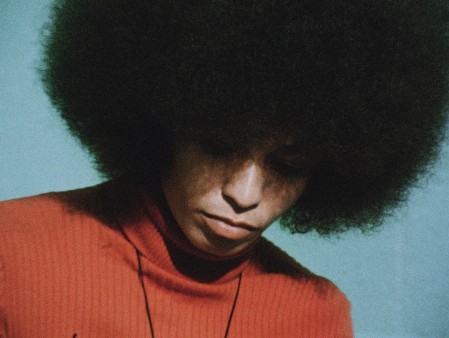Remixing Black Power

This week brought The Black Power Mixtape to Chicago, though the film was previously released in early September to audiences in Los Angeles and New York. A documentary pieced together by filmmaker Goran Hugo Olsson from hundreds of reels of 16-mm interview footage produced by Swedish television journalists from 1967 to 1975, The Black Power Mixtape interlaces contemporary audio commentary revisting the Movement with many clips either unseen since they first aired in Europe, or lost to network archives. Organized chronologically by year, the film documents the rise of Black Power, from Stokely Carmichael’s earliest post-SNCC speeches and the founding of the Black Panther Party’s Free Breakfast Program to TV Guide’s (a publication owned by Richard Nixon’s then Ambassador to the United Kingdom, Walter Annenberg) critique of Scandinavian television’s “negative” portrayal of American society, eventually trailing off into more-or-less vernacular pieces on Harlem bookstores and drug-treatment culture.
To watch the movement’s rhetorical development and the increasing exile, imprisonment, and death of its leaders alongside the community’s—and nation’s—growing disillusionment with the Vietnam War, Nixon administration politics, and urban poverty, is a fascinating exercise in the nuances of discrimination and endemic societal problems. To watch all of this alongside a sometimes sympathetic, often curious, and largely culturally distanced assortment of Swedish journalists (drawn from over twenty televised broadcasts) leaves you pondering an almost inexplicable gap—between that time and the present, between these two societies (often united by their anti-Vietnam political stance), and between the roles of participant and observer. What sort of historical reading properly prepares you for a bus of blonde-haired Swedish investigative journalists being chastised about exploring Harlem, as their tour guide uncomfortably stumbles out a comment about how their fear is shared by better (“better?” “Can I say that?”) African American citizens?
In 2001, Eddie S. Glaude Jr., the William S. Tod Professor of Religion and African American Studies at Princeton University, edited the collection Is It Nation Time? Contemporary Essays on Black Power and Black Nationalism—thirty-five years after Adam Clayton Powell Jr. delivered, as part of his baccalaureate address at Howard University, an early version of the phrase: “To demand these God-given rights is to seek black power.” Is It Nation Time? collects new and classic writings on the Black Power Movement and its legacy by renowned thinkers—including Glaude, Cornel West, and Robin D. G. Kelley—in order to tackle contemporary issues such as the commodification of blackness, class tensions, and the larger discourse surrounding black nationalism.

A precursor to Is It Nation Time?, William L. Van Deburg’s New Day in Babylon: The Black Power Movement and American Culture, 1965-1975, follows the literal arc of much of The Black Power Mixtape’s historical trajectory, offering a comprehensive account of the Black Power Movement’s rise and fall, from its preconditions to ideologies that straddled everything from labor and campus life to sports, soul music, theology, and nationalism. The book garnered the Gustavus Myers Center’s Outstanding Book Award (1993), and was praised by Bob Blauner in the New York Times as a “densely textured evocation of one of American history’s most revolutionary transformations in ethnic group consciousness.”
Angela Davis, who recently retired from the University of California, Santa Cruz’s History of Consciousness program, where she long served as a professor (she’s currently Distinguished Professor in the Women’s and Gender Studies Department at Syracuse University), has several key moments in The Black Power Mixtape (including one that demonstrated the journalists’ unusual access to Davis during her 1971-72 stay in a Marin County prison cell). The most pressing of these occurs during the conclusion of one interview, where Davis states (in response to a question about violence in the movement): “When someone asks me about violence, I find it incredible,” she says. “A person asking that can have no idea about what black people have gone through in this country.”
To understand the raw emotion and power of Davis’s articulation, Is It Nation Time? and New Day in Babylon are fine places to start—but to place her words in the context of our own continued struggles for social justice and equality today, where institutional racism, economic disparity, the struggle for GLBTQ rights, and other issues play out in daily headlines, is to hear an echo of her furious intensity as part of a soundtrack whose audience continues to grow.
